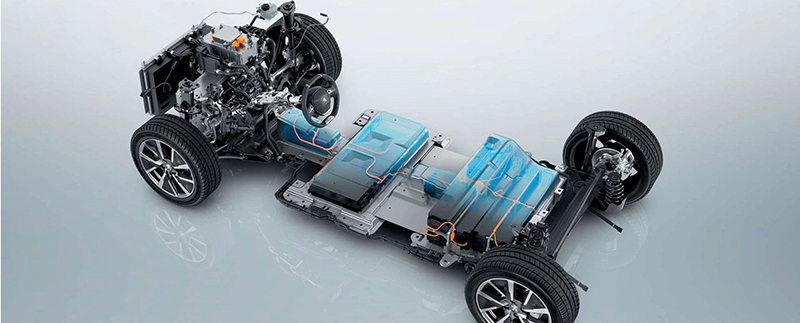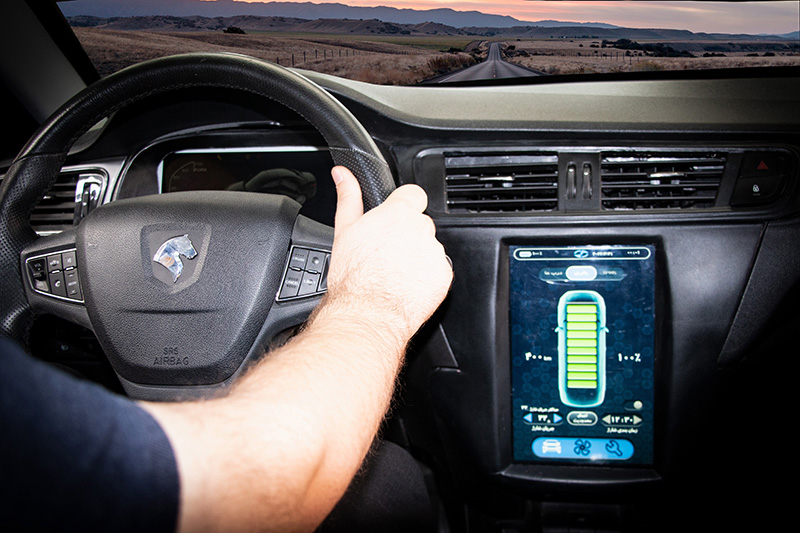Tara Electric Car: A Sustainable and Innovative Solution for the Future of Transportation
As concerns over air pollution and the need to reduce fossil fuel consumption grow, the adoption of electric cars has become increasingly critical. JETCO, under the supervision of the Iran Khodro Industrial Group, has made significant strides in localizing electric car production, leading to the development of the all-electric Tara car. This article will discuss the features of the Tara electric car and the broader context of electric vehicle production.
Understanding Electric Cars
Electric cars are powered exclusively by batteries, drawing energy from rechargeable battery packs rather than combustion engines. As a result, electric vehicles produce nearly zero exhaust emissions, offering a greener and cleaner alternative to traditional gasoline-powered cars. Moreover, electric cars generally have lower maintenance costs, making them an increasingly attractive option for both consumers and manufacturers.
Global Shift Towards Electric Vehicles
Major car manufacturers worldwide are rapidly transitioning to electric vehicle production. In the next two decades, it is predicted that the development of fossil fuel-dependent cars will no longer be a focus for manufacturers and governments alike. Recognizing this shift, Iran Khodro Company tasked JETCO with designing and manufacturing a locally produced all-electric car in March 2017, aiming to upgrade the automotive industry and create a cutting-edge electric vehicle.

JETCO’s Approach to Electric Vehicle Design
The Tara electric car project involved replacing traditional combustion engines with electric motors, requiring the redesign and analysis of various components and systems. JETCO designed and manufactured all driving force components, such as the electric motor, drive, battery pack, charger, gearbox, DC/DC converter, VCU, and more, ensuring the production of a truly local electric car.
Project Objectives
The primary goals of the Tara electric car project include:
- Developing technical knowledge for the design and manufacture of all-electric powertrains while meeting vehicle-level executive requirements.
- Designing and building an all-electric power transmission system for mass-produced vehicles based on domestic capabilities.
- Training skilled personnel and establishing a network of experts in all-electric powertrain design and construction.
- Collaborating with knowledge-based companies and academic, scientific, and industrial centers to create a stable and reliable supplier network for the automotive industry.
Tara Electric Car Specifications
The performance characteristics of the Tara electric car were achieved through the project and the construction of two engineering samples. Key features include:
- 0-100 km/h acceleration in under 10 seconds, top speed of 150 km/h
- Range of up to 300 km on a single charge
- Fast charging capabilities, achieving an 80% charge in 40 minutes
- High-performance electric motor with regenerative braking technology
- 45 kWh battery
- Weight of 1550 kg
- Maximum motor speed of 15,000 RPM
- Maximum motor torque of 200 Nm
- Maximum motor power of 100 kW (134 HP)
As the automotive industry continues to evolve, JETCO’s Tara electric car represents a significant step forward in the transition to sustainable, locally-produced electric vehicles.
The development of the Tara electric car is driven by several important factors, including:
- Addressing urban air pollution by transitioning from combustion vehicles to electric vehicles.
- Tackling high gasoline consumption and costs, improving national energy efficiency.
- Advancing national policies and goals in the field of all-electric vehicles.
- Keeping up with global automotive trends shifting from fossil fuel-powered to electric vehicles.
- Localizing the design and production of all-electric propulsion systems for mass-produced cars.
- Establishing a network of stable and reliable partners and suppliers in the automotive industry.
The Tara electric car offers numerous advantages for governments, customers, and society:
Government Benefits
- Reduced dependence on fossil energy sources and greenhouse gas emissions to combat climate change.
- Enhanced energy efficiency and performance compared to combustion cars.
- Monitoring fossil fuel consumption, potentially leading to decreased exchange rates for importers and increased exports for exporters.
- Mitigation of harmful environmental effects from combustion vehicles’ polluting emissions.
- Preventing increased medical expenses associated with air pollution-induced illnesses.
Customer Benefits
- Lower fuel costs due to the affordability of electricity.
- Convenient charging options beyond charging stations, such as at home, work, or in commercial spaces.
- Higher performance and efficiency than combustion cars.
- Reduced vehicle noise and vibrations.
- Government support, including subsidies, tax exemptions, dedicated routes, and free parking.
Economic Benefits
- Cost savings resulting from higher efficiency and lower electricity costs.
- Lower fuel costs and home charging possibilities.
- Maintenance cost optimization.
- Potential government support for electric car purchases.
Social Benefits
- Reducing urban air pollution from vehicle emissions.
- Decreasing gasoline and diesel consumption.
- Increased gasoline and diesel exports.
- Reducing traffic noise levels in cities.
- Staying current with global automotive technologies.
In summary, the Tara electric car demonstrates significant progress in sustainable and innovative transportation solutions, addressing environmental, economic, and social challenges while catering to various stakeholders’ needs and preferences.







c13k8a